Crossing Divides: Turkish schools help Syrians integrate
- Published
Syrian children learn Turkish so they can join classes with their Turkish peers
With millions of Syrians spilling into Turkey as they flee the conflict tearing their homeland apart, schools are at the frontline of the battle to integrate the newcomers into society.
On a crisp spring morning in Gaziantep, the playground of Sehit Karayilan school is abuzz with cheers as eight-year-olds face off in a football tournament. Boys compete with passion on the pitch while girls celebrate the goals with songs and laughter.
The south-eastern city is only 70km (43 miles) from Syria and almost half the 1,650 students at the school are Syrian. But you wouldn't know it from watching them. They all speak in Turkish.
"I really like this school. I read, learn and I have many Turkish friends. They're great," says 10-year-old Eye Kenco in near-perfect Turkish. The Syrian girl says she'd like to stay in Turkey.
"I don't have friends in Syria. It's like home here."
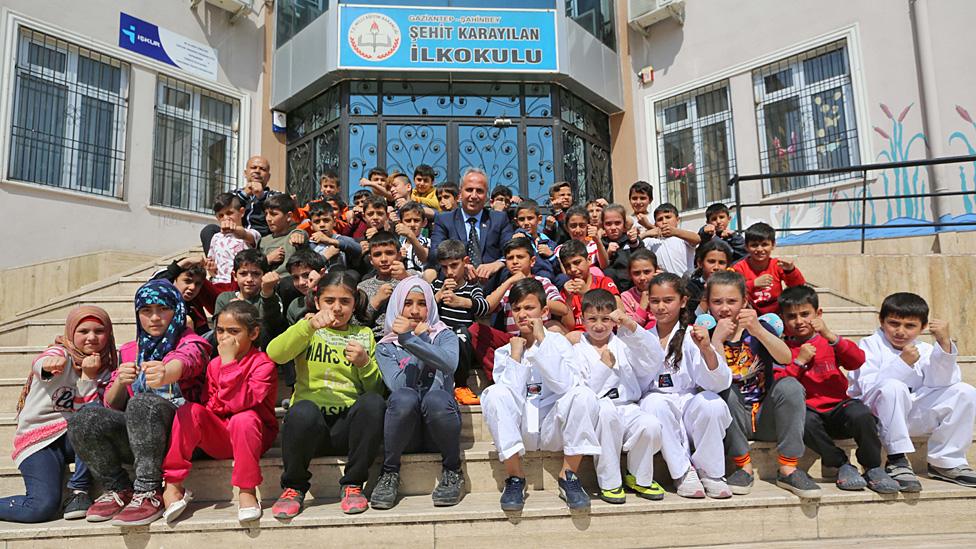
Some 1,650 pupils attend Sehit Karayilan primary school - nearly half of them Syrian
Some 3.5 million Syrian refugees have poured into Turkey since the conflict began in 2011.
Until recently, many of them preferred makeshift Syrian-only schools with lessons conducted in Arabic. But the government now prioritises integrating Syrian children into Turkish schools, like Sehit Karayilan primary.
It is one of thousands that are part of a new project called Promoting Integration of Syrian Children into the Turkish Education System (PICTES), costing 300m euros ($365m) and funded by the EU.
Under the model, Syrian children are taught Turkish so they feel able to attend other mixed classes with their Turkish peers.
Muhammed Ali Cinar, 25, is one of 5,500 specially trained teachers involved in the scheme.
He is clearly popular with students, who run across the playground to hug him.
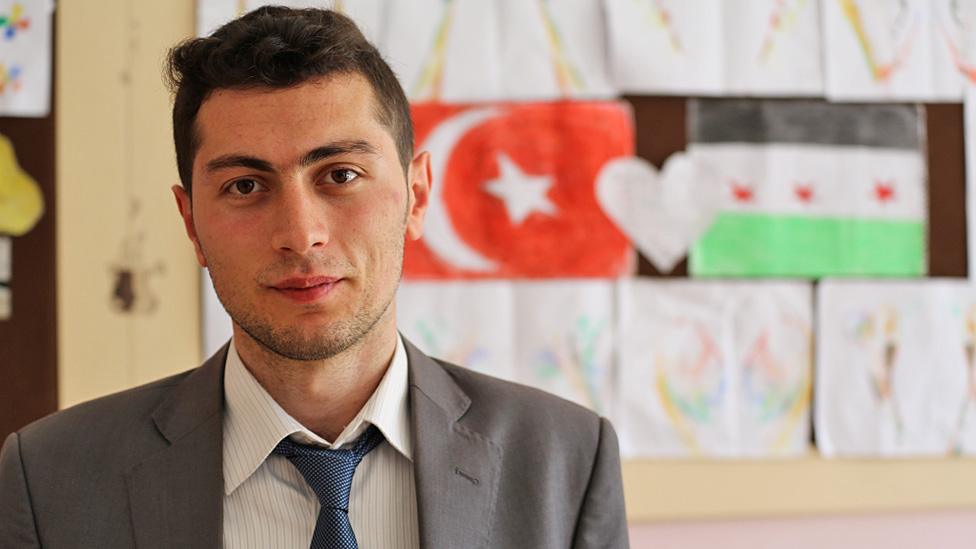
Muhammed Ali Cinar: One of 5,500 specially trained teachers involved in the integration scheme
In the classroom, pictures of Turkish and Syrian flags, painted by the children, decorate the walls.
But it has not been easy for the youngsters to adjust, says Cinar. "The first time I entered the classroom, it was as if I wasn't there. They totally ignored me."
So he employed different tactics.
The day the BBC visited, his class was holding a mock song contest in the style of The Voice, with the entire programme played out in Turkish.
"I let them pick the songs and they all chose Turkish tunes," says Cinar in surprise.
In return, he takes part wearing traditional Arabic costume with a song in Arabic, prompting enthusiastic cheers from his students.
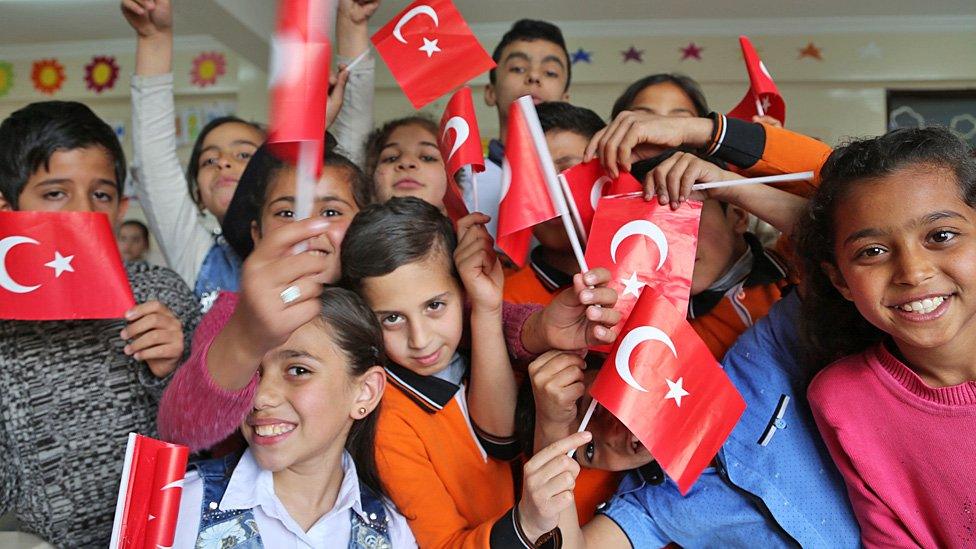
Helping Syrian children psychologically is one of the main aims of PICTES. Some 500 counsellors have been deployed to the schools for this purpose.
"The Syrian kids cried if the door was shut too loudly," Cinar recalls. "Once, when they saw the smoke from an aeroplane that passed overhead, they all said 'is that an airstrike or a terror attack?'
"One of my students used to cut himself, fight with his classmates and smoke. He hated Turks," Cinar remembers.
It took months of effort to get him to co-operate. Cinar says they are now like brothers: "He says that he loves me the most after [Syrian President Bashar al-] Assad."
When Syrian refugees first started coming to Turkey, President Erdogan called them 'guests' - the expectation being that they would stay temporarily.
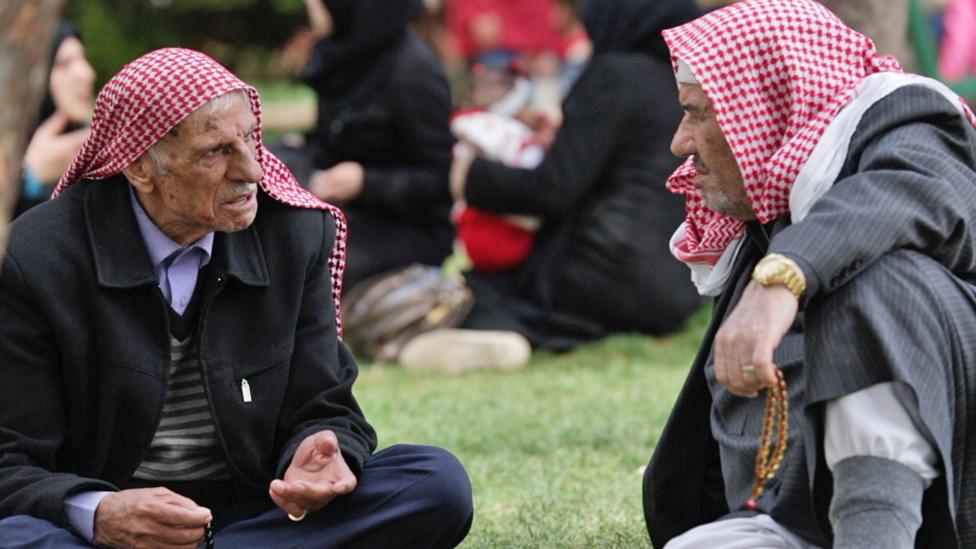
Since then some 300,000 Syrian children have been born in Turkey and it is widely believed many will remain.
When asked if the PICTES project is an acknowledgement of this, Cengiz Mete from the education ministry says the goal is to invest in children while they are here.
"If Syrians are going to stay here until the war is over, they have to be in harmony with the society they live in… We're doing these projects not because we think they will stay but to help them after they return."
Since the project started in November 2016, the number of Syrian children enrolled in Turkish schools has doubled to 344,156 - or about a third of all school-age Syrians in Turkey.
The goal is for all of them to join official schools.
The education ministry says it will take another three to four years for the project to be sustainable and to get all Syrian children into Turkish schools. They are now in talks to extend EU funding beyond October 2018.
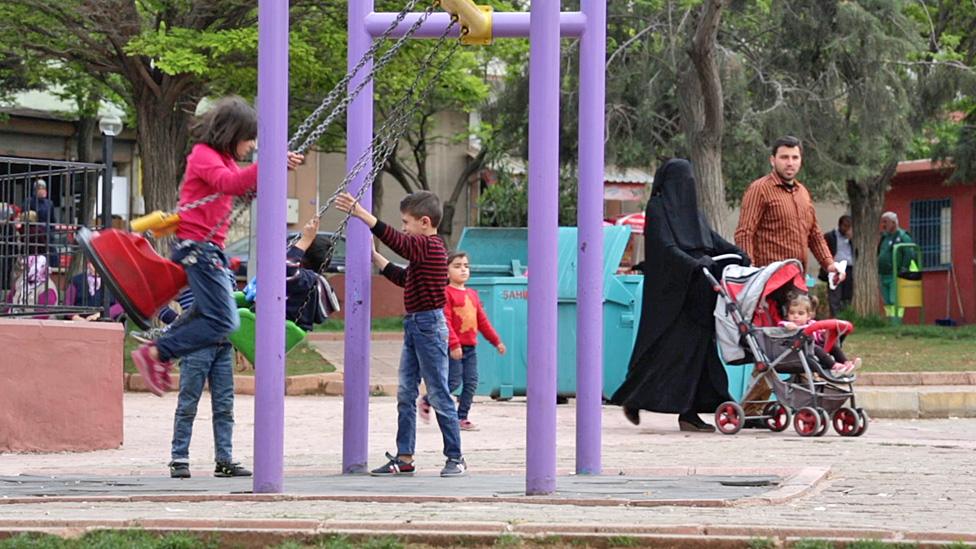
The need for greater assimilation of Syrians is clear.
An International Crisis Group report says the incidents of violence between Turks and Syrians increased threefold in 2017. At least 35 people died in these incidents.
Syrian communities in Turkey tend to cluster together. In some areas in Gaziantep, women are seen in black veils and only Arabic is spoken.
The school project is therefore also about integrating these families into Turkish society.
"I've met Turkish and Syrian families who lived in the same building for six years without talking to each other," Cinar says. "Unless they integrate, the Syrian community will become like a ghetto."
He makes a point of visiting his students' homes and takes the family of a Turkish classmate with him each time.
That's allowed friendships to flourish outside school, like that of Arif Ince and his twin Syrian classmates Omer and Ali Daba.
"I have both Turkish and Syrian friends," says 10-year-old Arif, playing toy darts with the twins at their home. "There's no difference between us".
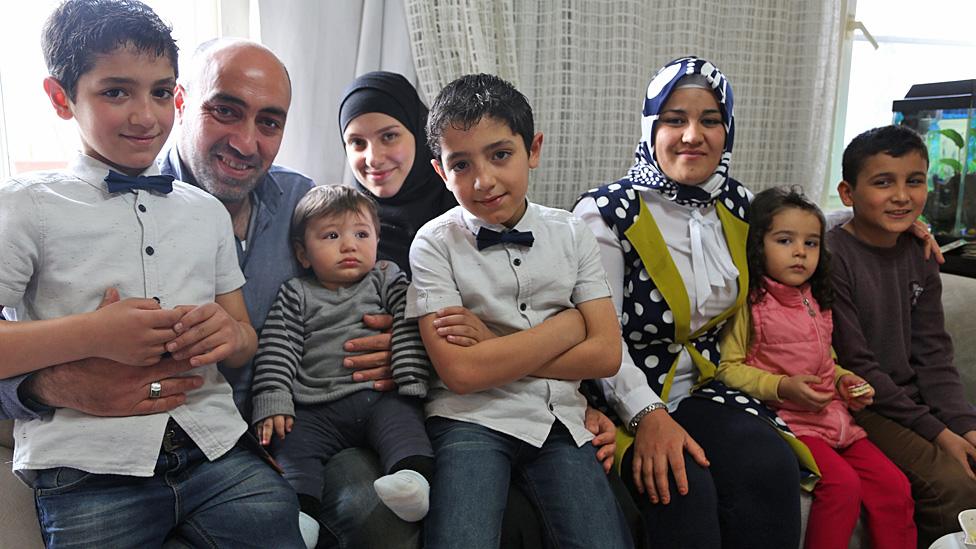
Home visits involving Syrians and Turks mean friendships can develop outside school
His mother, Ceylan, sips tea with the brothers' parents, communicating with gestures and a few Turkish phrases.
She recalls other parents' concerns about the mixed school: "There was suspicion and prejudice. They said if we were in that situation, Syrians wouldn't help us. They were worried about having too many kids in the classrooms, they said the teachers would focus on the Syrian kids and ignore ours."
Perceptions have changed with time, she adds.
But not everyone is happy about the Syrian children's presence in Turkish schools.
A bus driver who takes Turkish and Syrian pupils to school thinks they are not grateful enough.
"Most Syrian children are older than their Turkish classmates. They beat our kids. I see it in the bus every day. Instead, they should be grateful they are allowed in the school," he says.
He is not alone. Many in Turkish society think Syrian refugees have overstayed their welcome. Some, including politicians, argue that Syrian men should return to their country to fight.


Crossing Divides: a week of stories about people creating connections in a polarised world.
How to survive a difficult conversation

Do you have experience of building bridges within divided communities? Share them with us by emailing haveyoursay@bbc.co.uk, external.
You can also contact us in the following ways:
Tweet: #CrossingDivides
WhatsApp: +44 7555 173285
Text an SMS or MMS to 61124 (UK) or +44 7624 800 100 (international)
Please read our terms & conditions
To send your stories.
- Published6 April 2018
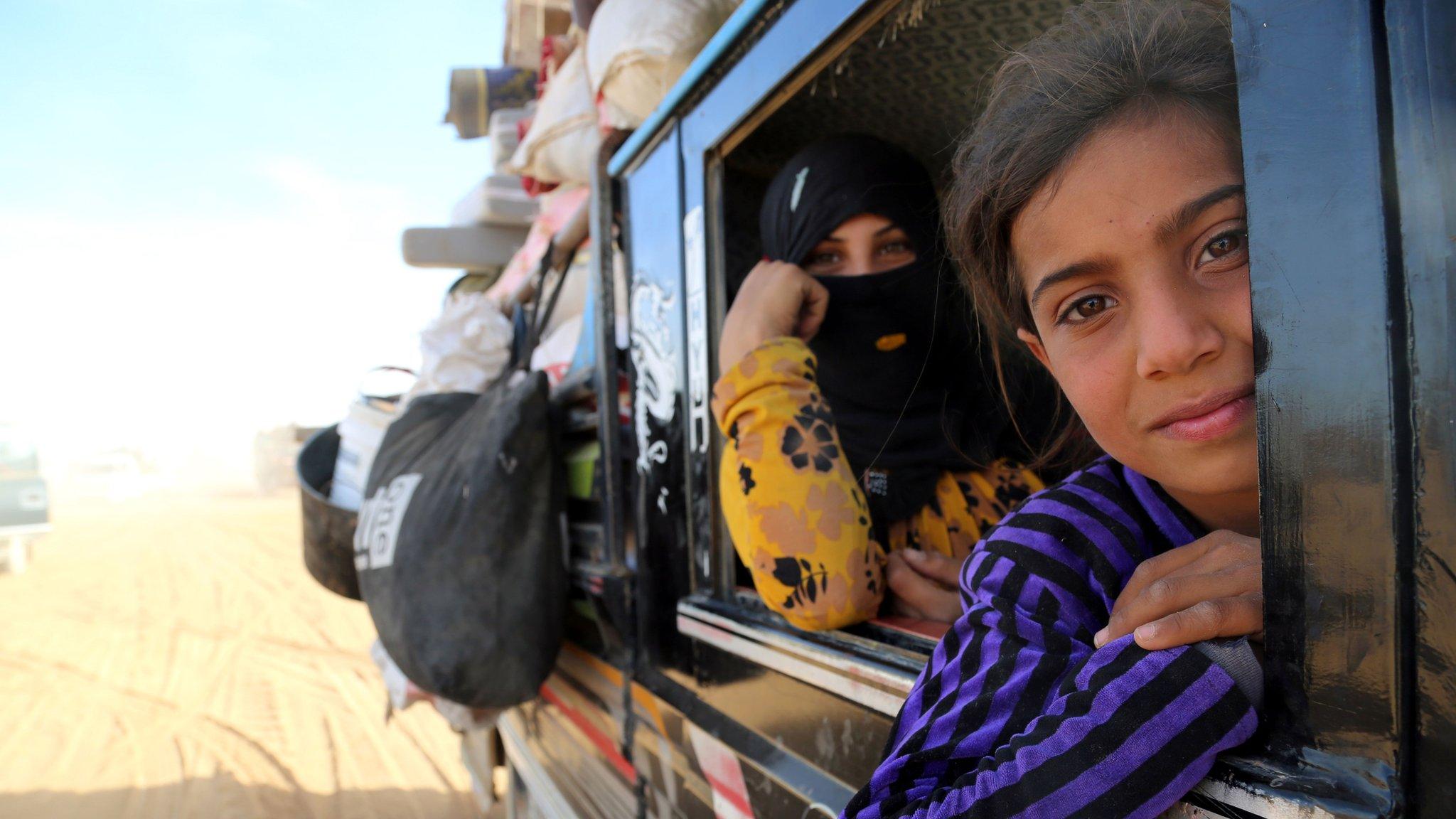
- Published2 May 2023

- Published7 January

- Published22 August 2023
